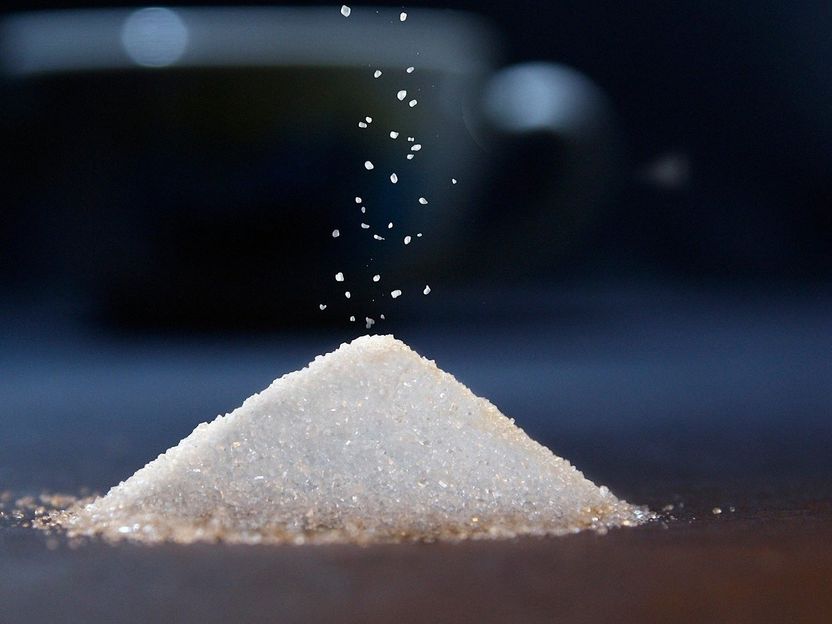Sugar leads to early death, but not due to obesity
Reduced life expectancy due to sugar consumption could have other causes than previously assumed
Advertisement
We all know that consuming too much sugar is unhealthy. It increases our risk of developing metabolic disorders, such as obesity and diabetes, and can shorten our life expectancy by several years. It is widely believed that this reduction in lifespan is caused by metabolic defects. However, this assumption could be wrong, as shown by a new study published yesterday in the journal Cell Metabolism by researchers from the Imperial College London in collaboration with researchers from Kiel University and the University Medical Center Schleswig-Holstein (UKSH), Campus Kiel. The results suggest that instead the accumulation of a natural waste product, uric acid, may be related to sugar-related shortened life expectancy.

955169/ Pixabay
Sugar consumption increases uric acid levels
The London team has investigated the influence of sugary food on the life span of fruit flies. “Just like humans, flies fed a high-sugar diet show many hallmarks of metabolic disease – for instance, they become fat and insulin resistant,” says Dr. Helena Cochemé of the Imperial College London, principal investigator of the study. “Obesity and diabetes are known to increase mortality in humans, and so people always assumed that this was how excess sugar is damaging for survival in flies”. However, like salt, sugar also causes dehydration. Therefore, the researchers gave the fruit flies additional water. Surprisingly they found that flies fed a high-sugar diet did not show a reduced lifespan, simply by providing them with an extra source of water to drink. Unexpectedly, these flies still exhibited the typical metabolic defects associated with high dietary sugar.
Based on this water effect, the team decided to focus on the fly renal system. They showed that excess dietary sugar caused the flies to accumulate a molecule called uric acid. Uric acid is an end-product from the breakdown of purines, which are important building blocks in our DNA. But uric acid is also prone to crystallise, giving rise to kidney stones in the fly. Researchers could prevent these stones, either by diluting their formation with drinking water or by blocking the production of uric acid with a drug. In turn, this protected against the shortened survival associated with a sugar-rich diet. “Although the sugar-fed fruit flies live longer if we give them more water, they are still uhealthy. But our study suggests that disruption of the purine pathway is the limiting factor for survival in high-sugar-fed flies. This means that early death by sugar is not necessarily a direct consequence of obesity itself”, said Cochemé.
Increased uric acid levels through sugar in humans
A similar mechanism could also work in humans, as researchers of the Cluster of Excellence “Precision Medicine in Chronic Inflammation” (PMI) have shown. A team led by Professor Christoph Kaleta, Professor Andre Franke, Professor Matthias Laudes and Professor Wolfgang Lieb - all from Kiel University - has investigated the influence of sugar-rich nutrition in healthy humans. “Strikingly, just like flies, we found that dietary sugar intake in humans was associated with worse kidney function and higher purine levels in the blood”, says Prof. Christoph Kaleta from the Institute for Experimental Medicine at Kiel University.
Accumulation of uric acid is a known direct cause of kidney stones in humans, as well as gout, a form of inflammatory arthritis. Uric acid levels also tend to increase with age, and can predict the onset of metabolic diseases such as diabetes. “It will be interesting to investigate how the accumulation of uric acid due to increased sugar consumption is related to metabolic diseases such as diabetes and whether it might even have a direct effect on life expectancy in humans," said Kaleta. "In the future, we might also be able to find new therapeutic targets and strategies that promote healthy ageing," predicts Kaleta.
Other news from the department science
Most read news
More news from our other portals
© 1997-2026 LUMITOS AG, All rights reserved

























































